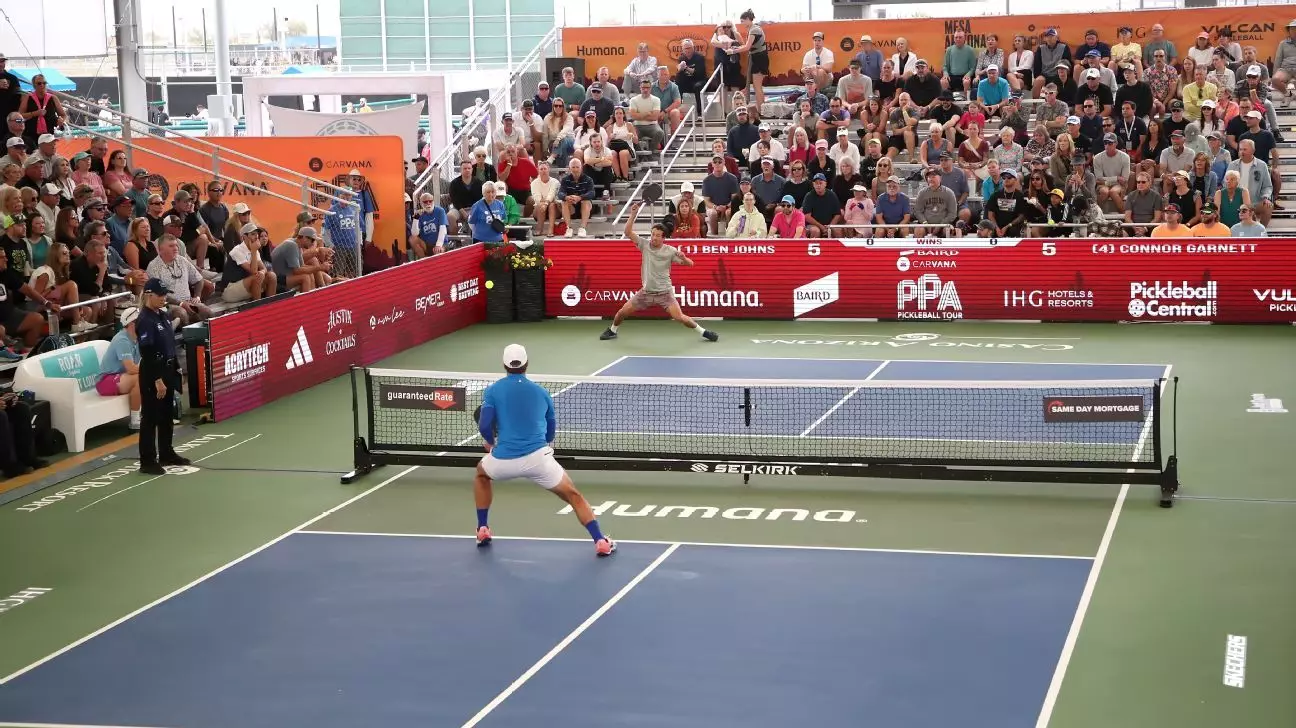The formation of the World Pickleball Players Association (WPPA) marks a pivotal moment in the sport’s history, signaling a shift towards greater athlete independence and industry maturity. For years, professional pickleball players have navigated a landscape dominated by organizations that dictated terms without necessarily prioritizing their concerns. Now, these athletes are stepping into a new era of collective self-determination, reflecting a deeper recognition of their importance within the sport’s rapid rise. They are no longer passive participants but active architects shaping the future of pickleball’s professional realm.
This move resonates far beyond symbolism. It signifies players’ recognition that their voices must be central in decisions impacting their livelihoods, safety, and careers. The establishment of a formal body like the WPPA demonstrates strategic foresight, acknowledging that a unified front enhances bargaining power and paves the way for sustainable growth. It might be tempting to dismiss this as merely a bureaucratic shift, but the underlying message is profound: professional pickleball players are asserting control over their destinies, demanding fair treatment, and pushing for standards that reflect the sport’s trajectory.
Leadership and Aspirations: Building a Foundation for Change
The core structure of the WPPA, a seven-member player-led board, embodies a commitment to transparency, fairness, and shared governance. It’s an intentionally pragmatic approach, balancing independence with collaboration. Notably, the association’s leaders emphasize that their goal isn’t antagonistic but rather constructive—fostering a culture of standards that benefits everyone involved, from top-ranked athletes to those still establishing themselves. The focus on issues like health, safety, and equitable compensation illustrates a thoughtful awareness that the sport’s integrity depends on solid foundational principles.
This move also underscores a broader recognition that the sport’s explosive popularity—propelled by sizable prize money and sponsorships—must be managed with athlete welfare in mind. The players understand that, without a collective voice, their concerns around scheduling, ranking fairness, or discipline could be sidelined in the pursuit of commercial interests. They aim to establish minimum standards that are universally respected, emphasizing that fairness and professionalism should be non-negotiable. Their approach resonates with the demands of modern sports models, emphasizing athlete rights as a cornerstone of sustainable sport development.
Historical Context: Breaking Free from the Past and Setting a Precedent
Previous efforts to organize players, such as informal councils or tour-sponsored groups, were often short-lived and lacked the independence necessary to enact meaningful change. The WPPA’s emergence signals a significant evolution, providing a platform for sustained advocacy rather than transient solutions. This distinction is critical; the association’s independence opens doors for genuine negotiations, unencumbered by conflicts of interest that have historically hindered progress.
Drawing inspiration from analogous movements in tennis and other sports, the WPPA aligns itself with a broader movement advocating athlete empowerment. The active backing from Sports Solidarity, founded by former baseball player Harry Marino, exemplifies how external support can catalyze athlete-led initiatives. Marino’s involvement highlights a crucial insight: athlete organization isn’t an act of confrontation but a strategic effort to ensure the sport’s health and industry longevity. The analogy with tennis’s PTPA underscores that players across sports recognize the importance of self-representation in safeguarding their interests.
Beyond the Present: Shaping a Resilient and Equitable Future
As pickleball continues its dramatic ascent, the significance of this association extends well beyond immediate issues. It acts as a catalyst for a cultural shift—one that recognizes athletes as vital stakeholders deserving of respect, transparency, and fairness. From reforming the ranking system to establishing clearer safety protocols, the WPPA’s agenda highlights a proactive stance that aims to foster trust and professionalism.
The association’s development also sends a powerful message to sponsors, tour operators, and fans: the sport’s legitimacy depends on athlete well-being and a fair playing field. By asserting their rights now, pickleball players are not merely advocating for themselves but are laying the groundwork for a sport that can thrive sustainably, with a reputation built on integrity and athlete respect. Their collective effort signals that the sport’s growth will be healthier, more equitable, and more aligned with the expectations of a modern, athlete-centric sporting landscape.

